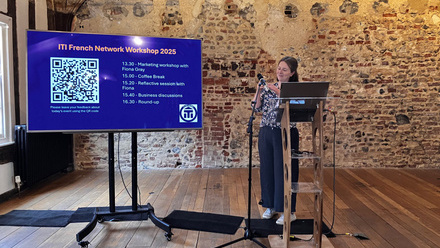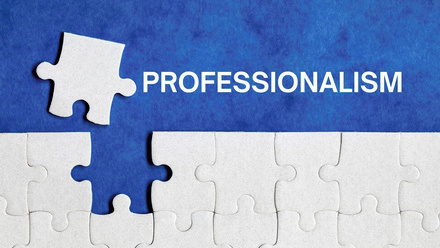How to plan an effective CPD programme for the year ahead
Holly-Anne Whyte MITI shares her tips for planning an effective CPD programme that meets your goals and works for you.
When I first started my freelance translation career hot on the heels of graduation I had few clients and plenty of time for CPD. I could do all the MOOCs I wanted, travel to free in-person events and spend hours on self-study. But as my workload grew I knew I’d have to be more intentional about what CPD I was doing and why. Here I share some tips on how we can plan an effective programme of CPD activities.
When planning our CPD it helps to really focus on the benefits:
1) Winning clients: We can use CPD as a marketing tool to show clients that we know our stuff and theirs, building trust and credibility.
2) Keeping clients: By doing the right CPD we can ensure the quality of our work is high and clients will have a positive experience of working with us, leading to repeat business and referrals.
3) Reducing stress: If we do CPD that is relevant to our work, we can feel confident that the quality of our work is high, giving us vital ammo to combat imposter syndrome.
Analysing key areas
To get the most out of the time (and money) we spend on CPD, it needs to be relevant and focused on the areas where we can improve the most. Of course, the core skills we need to provide our services to a high standard should always be top of our CPD agenda; the weaker they are, the higher priority they should be.
But deciding where to focus our efforts can be more difficult for more peripheral skills, such as source language speaking skills for translators. Here it’s important to focus on weaker areas and resist the temptation to just do what we enjoy most. Personally, I find using a points system (1 = terrible, 5 = excellent) or traffic light system to rank my skills helps to identify problem areas.
Finding relevant CPD
Once we know which areas we need to work on, the next step is to find relevant CPD. But when options range from big ticket conferences (such as the 2022 ITI Conference in Brighton) to listening to podcasts, it can be hard to know where to start. I tend to look at the more expensive side first, conferences and multi-day training, so I know where my budget stands for everything else.
T&I conferences and events provide great training and networking opportunities, but don’t forget about client-side events (the ones our clients put on and attend). Find out when they are, whether they are relevant to your work and how much they cost. Then decide whether you want to attend and book. Once you’ve booked you’re much less likely to find a reason not to go.
Next I look at regular CPD activities and check that they are covering my core skills and weak areas as much as possible. Regular activities I’ve found really valuable over the years include listening to podcasts on my specialist areas in my source languages, conversation exchanges and, more recently, revision clubs.
Then I look for training to fill in the gaps, making sure I’m covering all my core skills and areas for improvement. The ITI and other professional associations (including client-side associations) offer a wealth of training opportunities, often at very reasonable prices or for free.
Useful events are also put on by universities, think tanks, NGOs and international organisations, often for free (follow them on Twitter to be the first to hear about upcoming events). Longer courses can be found on platforms like FutureLearn (a favourite of mine) and Coursera, both of which work on a freemium model. I’ve saved my best sources of CPD in a favourites folder that I peruse for relevant events every couple of months.
Working out what works for you
Not everyone finds online content easy to consume and not everyone has the time to attend face-to-face training. Here I have to give credit to the ITI for making its conference next year a hybrid event. Bravo! It’s really important that we find what works for each of us as individuals. Fortunately, just within the ITI and its Networks there are a huge range of formats on offer. Whether its one-to-one mentoring, online webinars or in-person events, working out what works for you means you’re more likely to stick with it.
Logging our hard work
Once we’ve done all this fantastic relevant CPD we shouldn’t be ashamed to shout about it and make sure our clients know what we’ve been doing. I highly recommend the ITI’s CPD logging tool for keeping track of your CPD hours and what you’ve learnt, so you can refer back to it when planning future activities. You could also write client-facing reviews and summaries and use them as a marketing tool.
There are endless CPD opportunities out there, but by taking the time to decide on our focus areas, identify relevant one-off and regular activities, and reflect on our learning, we can all use our time effectively to ensure our businesses flourish.






